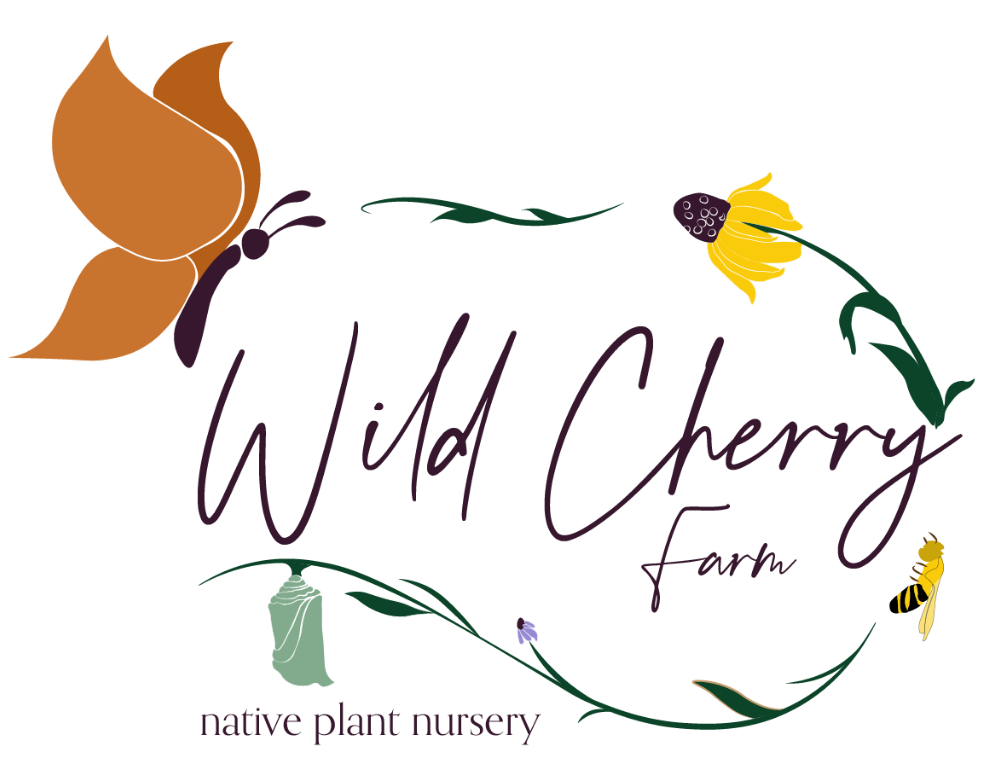Hairy Beardtongue (Penstemon hirsutus)
Hairy Beardtongue is a host plant of the Baltimore Checkerspot, Common Buckeye, and 11 other species of butterflies and moths in our area (nwf.org) including the threatened Saunders’ Sallow Moth (mnfi.anr.msu.edu). Hairy Beardtongue is visited by a number of native bees, is frequented by newly hatched bumble bees (Xerces.org), and is the host to the specialist Mason Bee Osmia distincta (Holm, 2017). Beardtongues fill a critical role for pollinators with their long bloom times by providing pollen and nectar when resources are dwindling at the end of spring.
Photo credit: John Blair (2-3)
Hairy Beardtongue is a host plant of the Baltimore Checkerspot, Common Buckeye, and 11 other species of butterflies and moths in our area (nwf.org) including the threatened Saunders’ Sallow Moth (mnfi.anr.msu.edu). Hairy Beardtongue is visited by a number of native bees, is frequented by newly hatched bumble bees (Xerces.org), and is the host to the specialist Mason Bee Osmia distincta (Holm, 2017). Beardtongues fill a critical role for pollinators with their long bloom times by providing pollen and nectar when resources are dwindling at the end of spring.
Photo credit: John Blair (2-3)
Hairy Beardtongue is a host plant of the Baltimore Checkerspot, Common Buckeye, and 11 other species of butterflies and moths in our area (nwf.org) including the threatened Saunders’ Sallow Moth (mnfi.anr.msu.edu). Hairy Beardtongue is visited by a number of native bees, is frequented by newly hatched bumble bees (Xerces.org), and is the host to the specialist Mason Bee Osmia distincta (Holm, 2017). Beardtongues fill a critical role for pollinators with their long bloom times by providing pollen and nectar when resources are dwindling at the end of spring.
Photo credit: John Blair (2-3)
Life Cycle: Perennial
Sun Exposure: Full, partial, shade
Soil Moisture: Medium-wet, Medium, Dry
Height: 18 inches
Plant Spacing: 10-12 inches
Bloom Time: May-June
Bloom Color: Purple
Advantages: Pollinator Favorite, Bird Favorite, Deer Resistant, Great landscaping plant
Host Plant: Baltimore Checkerspot, the Common Buckeye, and 11 other species of butterflies and moths use this as a caterpillar host plant in our area (nwf.org)
Specialist Bee: Mason Bee Osmia distincta (Holm, 2017)
Beneficial for Endangered or Threatened Species: Saunders' Sallow Moth (Sympistis saundersiana) (mnfi.anr.msu.edu)
Resource: Holm, Heather. Bees: An Identification and Native Plant Forage Guide. Pollination Press LLC, 2017










